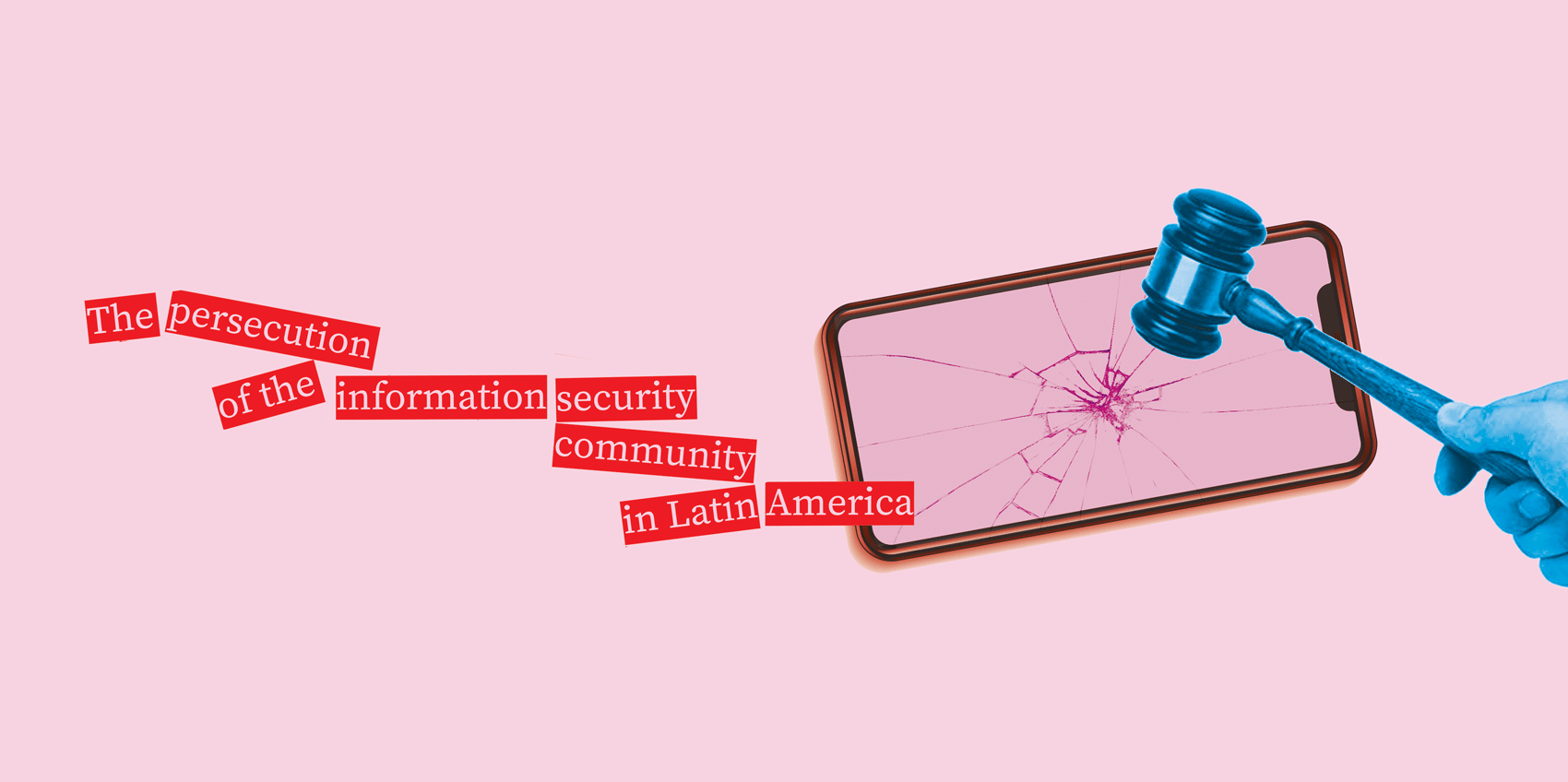Information security researchers are the unsung heroes of cybersecurity. Their work identifying and reporting on vulnerabilities or weaknesses in digital infrastructures, such as the internet, software code, and information systems, benefits all of us by making these systems more secure. Despite the clear value of their work, governments worldwide have not only vilified information security researchers, they have also persecuted them for finding and reporting on vulnerabilities. Our latest report, The persecution of the information security community in Latin America, aims to increase awareness of the hostile environment for security research in four Latin American countries — Argentina, Colombia, Ecuador, and Mexico — and propose solutions to protect this important work.

Our report does the following:
- Highlights the cybercrime and/or intellectual property laws that put information security researchers at risk;
- Provides examples of the persecution of information security researchers, including Javier Smaldone, Gaspar Ortmann, Juliana Peña, Ola Bini, and Chris Vickery; and
- Makes recommendations on legal, policy, and administrative reforms to increase support for and protection of information security researchers’ work in Latin America.
Information security research is critical for the protection of human rights, such as the right to free expression and the right to privacy, by uncovering harms conducted by public and private actors via spyware or malware. In Latin America and around the world, information security researchers must be protected to keep civil society safe.
Sigue las cuentas de Access Now para Latinoamérica:
